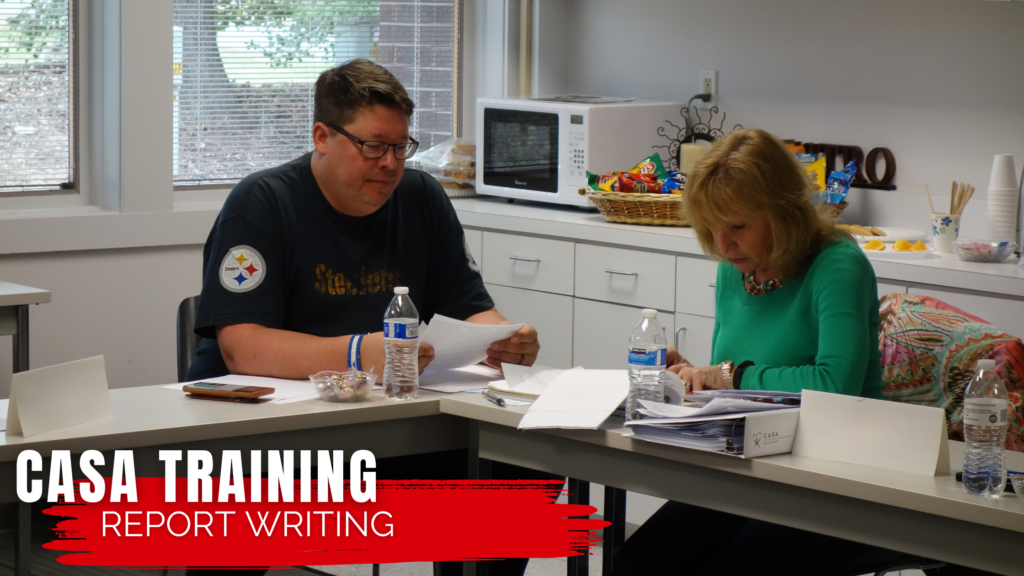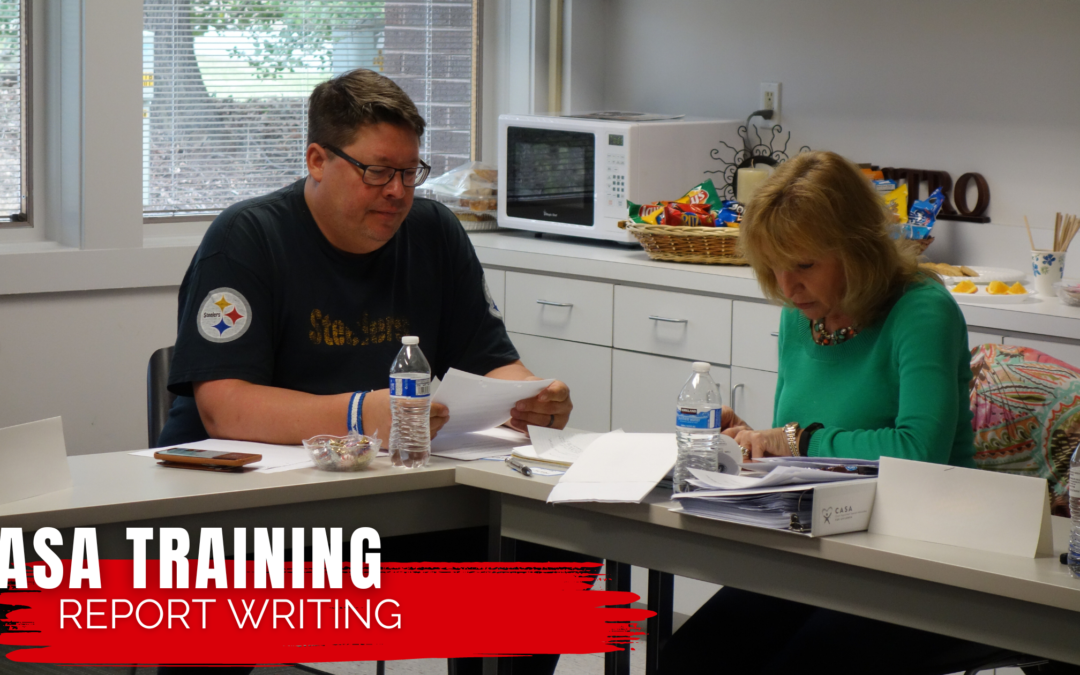
This fall, community members are working through our pre-service training, ready to start their journeys as Court Appointed Special Advocates. They join the 400+ advocates who have come before them during our 30 years of advocacy in Henrico County. We thought it would be a great time to share more about what CASA advocates learn in training.
The final, and arguably most important, part of advocate training is learning to write a court report. The CASA report is the advocate’s work product, the deliverable that goes directly to the judges who are hearing and overseeing the cases.
What goes into a CASA report?
- Case History
Who are the parties involved in the case? What is the history of court involvement, such as previous petitions, allegations, and outcomes? - Description of Current Situation
What is the current matter before the court? Who has been contacted? What reports have been reviewed? Are parties in compliance with court orders? Have there been any changes since the previous hearing? - Details on the Child Involved
This is where CASA reports shine! Advocates gain valuable insights and observations during their weekly visits with their CASA child. How is the child doing emotionally, academically, and socially? How are their visits with family members perceived? What are the child’s concerns, wishes, and needs? - Recommendations
What is needed to protect and promote the best interests of this child? Custody and visitation arrangements? Treatment and/or referrals for services?
Why are CASA reports important?
“CASA reports provide invaluable information to assist me in my decision making. The more information I have, the better my decisions will be.”
There is an “efficiency by having an extra set of eyes/ears on the family. The time CASA spends on a case assists GALs and other professionals, as well, and it streamlines everyone’s efforts.”
“CASA was able to “humanize” the case. The details about how the children play, how they interact with each other, with the parent, even with the CASA worker – all very helpful and a somewhat different perspective.”
The judges serving on Henrico’s Juvenile and Domestic Relations Court tell us again and again that they deeply value CASA reports. We are proud to be able to provide this service for them!








